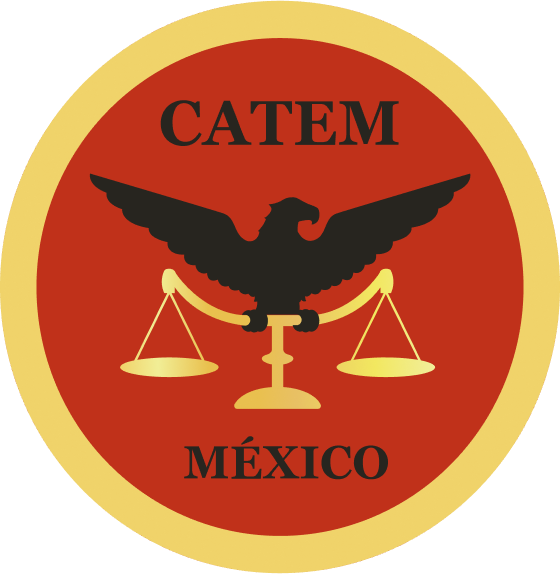Addiction vs Dependence: Differences In Drug Abuse Terms
Content
On the other hand, they use “addiction” to describe drug use that has become the main activity. At this point, the drug addiction is a top priority in the user’s life. They can also make an individual struggling with alcohol or drug use feel like they can’t go through with quitting. Compassion and a full understanding of what these people are going through can help them keep going. As the medical and scientific discussion on these terms has progressed in recent years, both are now considered as part of a larger grouping; that of substance use disorder. Detoxification treatment may need to be administered to those with substance dependence due to the dangerous nature of some withdrawal symptoms.

They have to go through these changes to get back to a substance-free state. For example, one wouldn’t treat an infant for addiction/drug abuse if the infant were born with a physical dependence. Additionally, undiagnosed or untreated mental health issues, such as depression, can be a predictor of eventual reliance on substances for self-management of negative affective states.
What is the difference between drug dependence and addiction?
For example, a person who doesn’t drink often may feel impaired after one or two drinks. But, someone who drinks daily may not feel anything until after four or five drinks. The brain parts critical to judgment, decision-making, learning, and behavior control are damaged. This may turn experimentation into compulsion and eventually an inability of self-control. Himself, an alumni of The Freedom Center, Michael brings a personal experience of the program to his role. A resident of Gaithersburg, Michael has planted roots and established a network in the local recovery community.
- Physical dependence affects that part of the brain that oversees autonomic body functions, such as breathing.
- Many people who struggle with drug abuse think these words describe the same thing, but their unique definitions play a large part in the type of treatment you should receive.
- This is why it is vital to follow the recommended dosage and duration of use when taking prescription drugs.
Drug dependence refers to someone feeling like they cannot function normally without taking a substance. Dependence can be physical or psychological and can have many negative effects on someone’s life. Some people do well at home with regular doctor visits and support groups. And sometimes it takes more than one type of treatment to be successful. People used to believe that addiction only happened in certain areas, like in inner cities, or among specific groups of people, like those who were down and out. But addictions can happen anywhere, from college campuses to rural and suburban towns.
Understanding Dependence
With a robust foundation in 12-step philosophy, Federico can not only educate the clients on the model, but also integrate the tried-and-true principles in a more personal, clinical setting. Outpatient treatment involves reporting to a treatment center at designated times to help with the detox process and receive therapy to manage addiction. Outpatient treatment can be a good idea for those who have work or family responsibilities that they don’t want to neglect while they are healing. For instance, someone who is on a prescription for pain medication may find that he needs increasing amounts of dosage for the medication to work. Some doctors may diagnose this as an increasing tolerance, or it might be disguised as the possible start of an addiction issue.
A more accurate way to think of the relationship between the two is that dependence is a consequence of drug abuse that often coincides with addiction, but is not necessarily the cause—or a result—of it. Drug use elicits a complex chain of emotional and physiological reactions that can affect people differently depending on a number of factors (including the type of addictive substance). Drug dependency is a condition where the body or brain has become adapted to a substance to such a degree that an individual would experience negative side effects should they abruptly cease that substance’s use.
Addiction
The minds behind the DSM find the term carries too much negative connotation and is ambiguous. The World Health Organization also wanted to replace the medical designation of “addiction” with the word “dependence” back in 1964 (which probably contributed to the confusion). However, there are still important differences when it comes to understanding addiction vs. dependence. It is a way to replenish positive feelings in a life that feels lacking in daily joy.
While drug addiction affects the reward pathways of the brain (including the mesolimbic pathway and the mesocortical pathway), dependence affects the thalamus and brainstem. James Scribner holds a bachelor’s degree from the University of Maryland’s Robert H. Smith School of Business. His career began working in the accounting industry as a financial auditor.
He provides individual therapy, group therapy, and assessments for clients in recovery from substance use and any related mental health issues. Vince is passionate about the work that he does, and approaches therapy through an empathetic and motivational approach. Opioids, for instance, are known for their ability to provoke the rapid development addiction vs dependence of physical dependence. If you use opioids regularly over a prolonged period of time, your body will adapt to the presence of the drug and may experience withdrawal symptoms if the drug is reduced or stopped suddenly. Withdrawal symptoms for opioids can include flu-like symptoms like nausea, vomiting, diarrhea, muscle aches, and sweating.
- Additionally, undiagnosed or untreated mental health issues, such as depression, can be a predictor of eventual reliance on substances for self-management of negative affective states.
- Individuals can end up with a dependence despite never having had any desire to “take drugs.” It’s important to remove the stigma of dependence and addiction so people can get the help they need.
- Over time, the brain becomes tolerant to the effects of drugs, requiring higher doses to achieve the same effect.
- This is why the offspring of addicts are prone to becoming addicts.
- This may turn experimentation into compulsion and eventually an inability of self-control.
Mental dependence is when use of a substance is a conditioned response to an event or feeling. These are known as “triggers.” Something as simple as the act of driving can trigger a desire to use. These triggers set off biochemical changes in a person’s brain that strongly influence addictive behavior. Physical dependence can occur even if the drug is used as prescribed by a healthcare professional. This is why it is vital to follow the recommended dosage and duration of use when taking prescription drugs.
a better life.
Let’s take a closer look at drug addiction and dependence and explore how to distinguish one from the other. In much the same way as alcohol addiction, drug addiction doesn’t always mean the individual physically depends on the substance. Individuals can end up with a dependence despite never having had any desire to “take drugs.” It’s important to remove the stigma of dependence and addiction so people can get the help they need. Physical dependence is not synonymous with addiction; a patient may be physically dependent on a drug without having an addiction to the drug. Tolerance, physical dependence, and withdrawal are all expected biological phenomena that are the consequences of chronic treatment with certain drugs. These phenomena by themselves do not indicate a state of addiction.
What is drug addiction in simple words?
What is drug addiction? Addiction is defined as a chronic, relapsing disorder characterized by compulsive drug seeking and use despite adverse consequences.
For example, drugs like alcohol, benzodiazepines, methamphetamine, and opioids may result in physical dependence faster than drugs like marijuana or ecstasy. Still, repeated use of any addictive substance can lead to both physical and psychological dependence. After detox, you or your loved one can attend inpatient rehab at our Newport Beach addiction treatment centers. https://ecosoberhouse.com/article/how-to-make-your-home-more-environmentally-friendly/ This is where you’ll receive ongoing care for your withdrawal symptoms, and you’ll attend therapy for mental health symptoms. You’ll also have access to a support circle of other detoxed addicts aiming for the same goal of lifelong recovery. Physical and psychological dependence on a drug is different, although many with addictions to drugs or alcohol have both.
Substance Abuse
When you discuss the nature of drug dependence and addiction, it’s important to understand what the term dependence refers to. In the topic of addiction, dependence can be both mental and physical and refers to the use of a substance as a condition response to a certain event or feeling, also known as triggers. Triggers can be anywhere from stress to driving and can set off the desire to use drugs or drink. Dependence can also be characterized as the body’s adaptation to the substance, its increasing need for more of the substance (tolerance), and the presence of symptoms if the substance is suddenly stopped (withdrawal).




Leave a comment